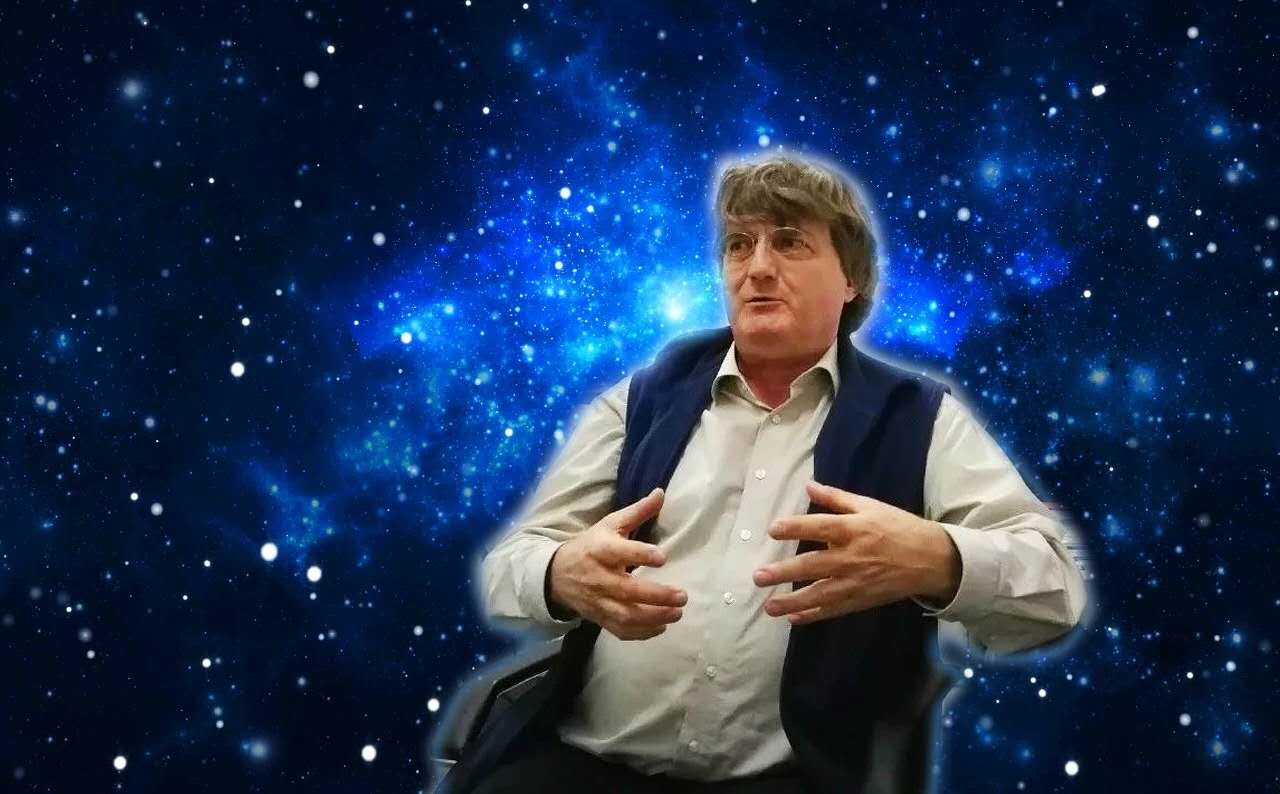Ever since the founding of the People's Republic of China in 1949, a large number of foreign experts have devoted themselves to the cause of China's construction and rejuvenation and made great contributions to China's reform and opening up.
The German astrophysicist Rainer Spurzem is among them, who is 60 years old and about to enter the 10th year of working in China. He is currently leading the Silk Road Project Team, a group of international scientists and students dedicated to computational studies of the evolution of stars, galaxies, black holes and etc. They are like prophets who can tell the future of stars through computers.

Professor Rainer Spurzem (Image by Bhusan Kayastha)
Supercomputers Brought Him to China
Rainer Spurzem is a senior international scientist and a professor at Heidelberg University in Germany, who specializes in astronomy and supercomputing.
He jokes that it was not a Chinese wife but supercomputers that brought him to China in 2009.
At that time, China initiated a special program to develop its own technology so as to make a big jump in supercomputing dominated by US and European countries. In 2010, Tianhe 1 using GPU technology came out and became the fastest supercomputer in the world.
Professor Spurzem happened to know how to use this kind of supercomputers because in Germany he applied the same theories of the graphics processing unit or GPU, a core part of the video driver of a personal computer to supercomputers.
At the invitation of the National Astronomical Observatories of the Chinese Academy of Sciences, he came to Beijing to build Laohu Tiger, a smaller supercomputer with the same GPU technology like Tianhe 1 and started to use it for scientific applications.
Installed in 2010, Laohu was one of the first GPU accelerated supercomputers in China. Its peak performance in 2010 was 170 Teraflop/s (SP) and 75 Teraflop/s (DP). At that time, it was among the 20 most powerful computers in the world. Now, after upgrading, it remains on the top 500 supercomputer list in the world.
They Are Prophets of Stars with Computers
One of the tasks for Laohu is to predict gravitational wave emission from black holes. Professor Spurzem and his Silk Road Project Team study the stars through computers instead of telescopes.
"Because astronomical time scales are extremely long. When we observe, we cannot wait for many millions of years. When we look to the sky, everything is not changing, but actually in millions of years, all these objects evolve and form galaxies and star clusters," he says.
Through computer simulations, they can simulate the evolution of stars, galaxies, black holes and etc in such a long period of time. They can actually see the lives of all these objects.
For example, they had simulated black hole collisions, pinned down their locations, numbers and evolution long before the world physically detected gravitational waves from collision of two black holes in 2016 and observed them in 2017.
Professor Spurzem is gratified that their research and the physical observation prove each other and benefit from each other.
Silk Road Project Unites Astronomers
The Silk Road Project led by Professor Spurzem is a bridge between China and Germany and they collaborate closely with institutions and colleagues from countries along the Silk Road such as Pakistan, Nepal, Kazakhstan, Ukraine, Poland and many others.
Professor Spurzem is proud that they named it the Silk Road Project as early as 2009, which later well fits in China’s Belt and Road Initiative. He is dedicated to helping scientists from all over the world cooperate well and fulfill their own goals.
I Love Working in China
In 1983, Professor Spurzem came to China for the first time as a young backpacker who witnessed China starting opening up and people starting businesses and there were no fast trains, luxury hotels and many others. He says now every thing develops so fast that it's a convenient life living in Beijing.
At that time it was completely surprising that he would be working in China dozens of years later. In 2013, Professor Spurzem was among the first batch of 25 foreign experts of China's 1,000 Talent Plan, a recruitment program organized by the Chinese government. He keeps the certificate in the office, at an obvious place on the windowsill.
"I prefer to working in China because the working conditions here are very good for us. I expect to work in China at least for another 5 years or 10 years. There's basically no plan to stop this. I’m here for its 70th anniversary and maybe I can still be here for the 80th!" Professor Spurzem says.

